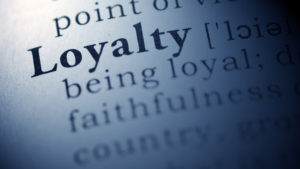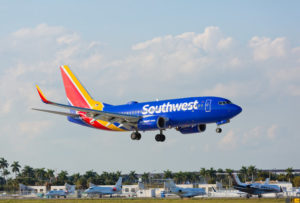Customer loyalty, the metric many believe to be the holy grail of marketing, can be oh so hard to pin down. In a world with overwhelming numbers of options in every arena and rapidly decreasing consumer attention spans, it can be hard enough to get people to notice your brand, much less choose to keep paying attention (and buying) day after day, year after year.
So, how do the most successful brands gain customer loyalty? If you are to believe Gary Kelly, CEO of Southwest Airlines, the trick to making customers very happy is to start with employees. The company’s approach to employee engagement includes profit sharing, healthy retirement benefits, and the nurturing of individual personalities. Even more incredible, the company has never laid off a single person. In this light, it’s no wonder employees are happy. But does this really translate to happier customers?
It may do just that. A 2012 organizational psychology study suggests that increased employee engagement and positive job attitudes can lead to greater organizational commitment – which, in turn, boosts company performance. Or, as Southwest spokesman Brad Hawkins explains, “We hire rock stars, ask them to be themselves, and then support them in everything they do to take care of our customers. This leaves customers wanting to come back for more. Then our customer loyalty grows the business and rewards our stakeholders.” This strategy does seem bolstered by the numbers: Southwest is now the 3rd most popular airline in the world, following only American and Delta.
As many of us have learned through our consumer research efforts earlier this semester, as well as last week’s Dove case study, consumers are drawn to authentic brands – those with stories they believe and perspectives they trust. And what could be more authentic and believable than a genuinely happy employee?
What do you think? Is employee happiness the key to building happy, engaged, and loyal customers? Have any of you experienced this connection in your own jobs and companies? I’d love to hear what you think.
As we continue to create effective integrated marketing plans, many of us will strive to help our clients deepen loyalty and generate customers advocates and ambassadors for our brands. Perhaps incorporating strategies to address employee engagement truly is the best starting point.
References
Dahl, D. (2017, July 28). Why do Southwest Airlines employees always seem so happy? Forbes. Retrieved from https://www.forbes.com/sites/darrendahl/2017/07/28/why-do-southwest-airlines-employees-always-seem-so-happy/#62b926f359b0
Mankowska, A. (2016, September 12). The holy grail of marketing: Customer loyalty. Forbes. Retrieved from https://www.forbes.com/sites/forbescoachescouncil/2016/09/12/the-holy-grail-of-marketing-customer-loyalty/2/#46a7e8a114d8
Meltzer, M. (2018, March 8). Why people are weirdly obsessed with Southwest Airlines. Thrillist. Retrieved from https://www.thrillist.com/travel/nation/southwest-airlines-customer-loyalty
Saxon, J. (2017). Why your customers’ attention is the scarcest resource in 2017. American Marketing Association. Retrieved from https://www.ama.org/partners/content/Pages/why-customers-attention-scarcest-resources-2017.aspx
Winkler, S., Konig, C., & Kleinmann, M. (2012). New insights into an old debate: Investigating the temporal sequence of commitment and performance at the business unit level. Journal of Occupational and Organizational Psychology. Retrieved from https://onlinelibrary.wiley.com/doi/abs/10.1111/j.2044-8325.2012.02054.x




8 Responses to Could Employee Happiness Really Be the Key to Customer Loyalty?